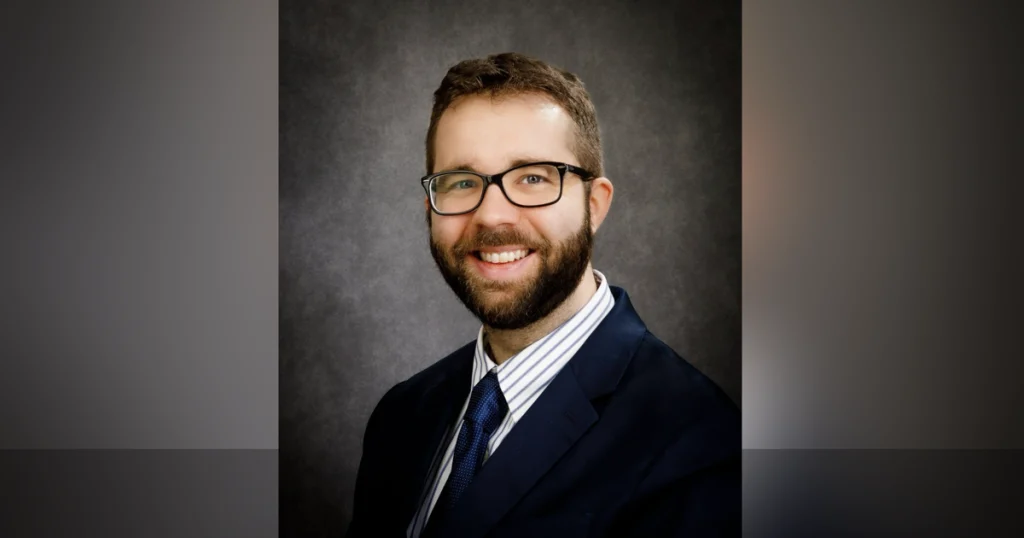Listen to the article
In a world saturated with information, understanding why people believe falsehoods has become increasingly important. Dr. Matthew Facciani, a Westminster College alumnus and current researcher at the University of Notre Dame, will address this critical issue during Westminster’s annual Psychology and Neuroscience Colloquium next month.
Facciani will present “The Psychology of Misinformation: How Our Social Worlds Shape What We Believe” on Thursday, November 6, at 5:30 p.m. in the Dietz Sullivan Lecture Hall at Westminster’s Hoyt Science Center in New Wilmington, Pennsylvania.
The presentation will delve into the complex psychological and social factors that make people susceptible to misinformation. Drawing from his book, “Misguided: Where Misinformation Starts, How It Spreads and What to Do About It,” Facciani will explore how personal identities, social circles, and psychological processes influence our interpretation of facts and information.
“Facts alone aren’t enough to inform society,” Facciani argues in his research. His work examines how various tools, including media literacy and trust-building, can help individuals navigate today’s overwhelming information landscape.
Facciani’s interest in this subject began during his undergraduate years at Westminster College, where he majored in psychology before earning his Ph.D. in sociology from the University of South Carolina. His academic journey was shaped by early classroom experiences that demonstrated the power of social influence.
“As a psychology major at Westminster, I was fascinated to learn how easily social influence can shape what we believe to be true,” Facciani recalled. “In one class experiment, I saw how people often change their answers to a simple task after hearing someone else give the wrong response first.”
These formative educational experiences at Westminster provided the foundation for his current research focus on media literacy, misinformation, political polarization, and artificial intelligence.
Beyond his academic work, Facciani has established himself as a prominent science communicator who translates complex social science research for general audiences. His efforts to make scholarly insights accessible extend across multiple platforms, including major media outlets, national conference presentations, and his podcast, “Misguided.”
The Psychology and Neuroscience Colloquium where Facciani will speak carries significant academic weight at Westminster College. The series was established by two emeriti professors, Dr. David B. Gray and Dr. Alan G. Gittis, both of whom dedicated decades to the institution. Gray served on Westminster’s faculty from 1965 to 2003, while Gittis taught from 1976 to 2011.
This annual event serves a crucial purpose in Westminster’s academic mission, allowing undergraduates to engage with cutting-edge research and developments in psychology and neuroscience from leading scholars across the country.
Facciani’s return to his alma mater represents a full-circle moment, as he credits Westminster’s “student-centered approach” with giving him the confidence to pursue graduate studies and a research career. “The hands-on research experience I gained there provided the foundation I needed to succeed as a scientist,” he said.
As misinformation continues to challenge social cohesion and public discourse, Facciani’s research offers valuable insights into how psychological and social forces shape belief systems. His presentation promises to provide attendees with a deeper understanding of why misinformation persists despite readily available facts, and what practical steps can be taken to address this growing societal challenge.
The event is free and open to the public, offering community members an opportunity to engage with this timely and consequential topic.
Verify This Yourself
Use these professional tools to fact-check and investigate claims independently
Reverse Image Search
Check if this image has been used elsewhere or in different contexts
Ask Our AI About This Claim
Get instant answers with web-powered AI analysis
Related Fact-Checks
See what other fact-checkers have said about similar claims
Want More Verification Tools?
Access our full suite of professional disinformation monitoring and investigation tools




12 Comments
Exploring the psychology of misinformation is an important step in combating its spread. I hope the speaker provides practical takeaways on how individuals and communities can be more resilient to false narratives.
Absolutely. Understanding the underlying drivers is the first step, but identifying effective interventions is key. This colloquium could yield valuable insights.
This colloquium topic is timely and relevant. I’m curious to hear the speaker’s perspective on how misinformation takes hold, and what can be done to promote critical thinking and media literacy.
Yes, it’s a complex issue without easy solutions. But equipping people with the tools to navigate the information landscape is a crucial first step.
As a Westminster alum, I’m glad to see the university addressing this critical issue. Misinformation has real-world consequences, so equipping students with the skills to think critically is crucial.
Agreed. Building media literacy and trust-building skills should be a priority for educational institutions. Looking forward to seeing how the speaker’s insights can be applied.
This colloquium seems very timely given the prevalence of misinformation, especially online. I appreciate the university bringing in an expert to shed light on this important issue.
Agreed. Navigating the overwhelming information landscape is a major challenge, so tools to help discern fact from fiction will be valuable.
The psychology behind misinformation is a fascinating topic. I’m curious to hear the speaker’s views on how our social identities and information bubbles can distort our perception of reality.
Yes, understanding the cognitive biases at play is key. Hopefully the presentation will offer practical strategies for individuals to be more discerning consumers of information.
Interesting to hear how psychology plays a role in the spread of misinformation. I’m curious to learn more about the specific factors that make people susceptible to believing falsehoods.
Yes, the interplay between personal identity, social circles, and cognitive biases is crucial. Looking forward to insights on how to build trust and media literacy.